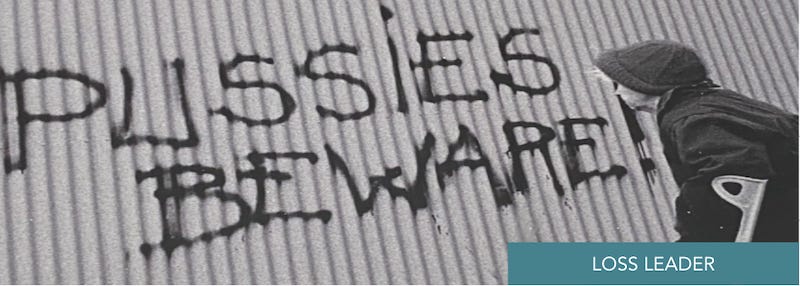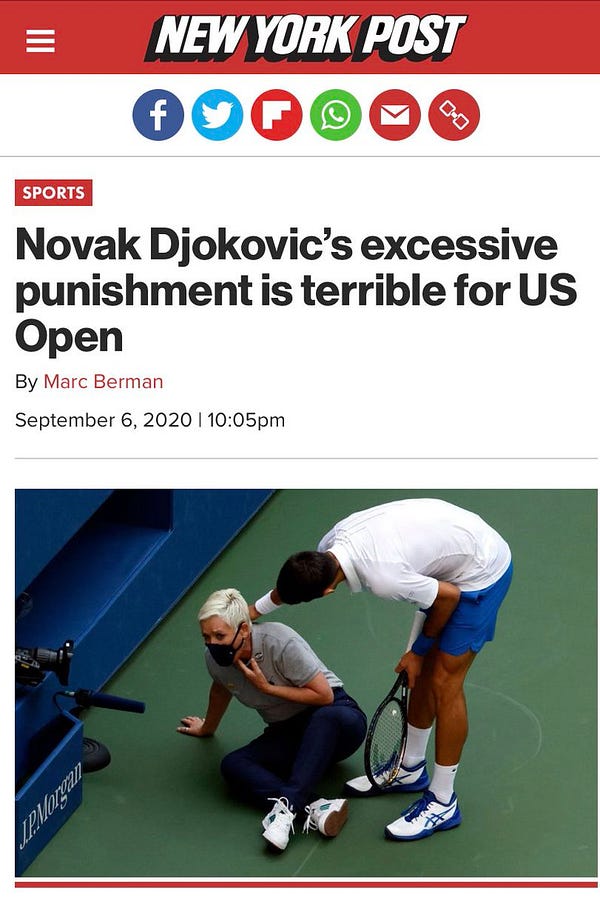
Once, when I worked in the provincial government, I received a call from a staffer of then Mayor Rob Ford, asking for a job. It was at the height of the crack cocaine scandal, with a sitting Mayor clearly in the throes of addiction, putting his life and the City at risk. When I told the young man that he would not be hired, he asked if my reasoning was political. No, I replied, it’s about judgement.
To me, it’s important to consider what greater responsibility you have in the world - to people, to safety, to integrity - and what would need to happen for you to place that responsibility before your own comfort.
The idea of a line in the sand, the point beyond which action is no longer a possibility but a moral judgement, has been in the news lately with Former Trump Chief of Staff John Kelly refusing to confirm whether Trump has, in fact, disparaged the military and those who were killed or injured in service to their country.
“He ought to do this without hesitation,” said The New Yorker.
The four-star general, who said he would have resigned had Trump asked him to do anything illegal, apparently feels it's inappropriate for him to come out against a sitting president during a campaign, with critics suggesting the threat of Trump’s reelection requires all people of good conscience to say what they know about his fitness to lead.
Whether you’re in politics or tech or health care or education, it’s increasingly important to be clear eyed about what’s at stake as a result of your organization’s actions, and your potential role in identifying those risks and escalating attempts to avoid them.
We all think about what we want to achieve in our professional roles. But perhaps it’s also necessary to be honest with yourself about what you must work to avoid. Even John Kelly alluded to the things he stopped from happening as his major accomplishments as Chief of Staff. God only knows what lines those crossed.
Losers vs Suckers

In her book, “Conflict is not Abuse,” playwright Sarah Schulman advanced the thesis that we must respond differently to bad behavior in order to find resolution without further polarization.
Likewise, leadership requires a healthy ability to understand that a loss is not always failure.
One good example is Ferrari’s Formula 1 team, which has been sucking hard this year. At this weekend’s Italian Grand Prix one of their drivers dropped out of the race and one crashed. In the first seven rounds of the season, the team has earned only 61 points, their worst performance since 2009.
But Ferrari CEO Louis Camilleri has refused to fire team leader Mattia Binotto, saying he is pushing back against Ferrari’s “revolving door atmosphere” where individuals are quickly singled out for blame and dismissed. He even went so far as to socialize the idea that the team might not improve for as much as two years.
“Getting people to work more in teams, that always takes a bit of time,” he said. “You don’t change cultures overnight.”
Not every failure requires a ritual sacrifice. Sometimes you just have to put in the work.
Ask, don’t tell

Early in the pandemic, a technology exec told me that before laying off a big chunk of their staff, he walked all employees through the different options they had explored to avoid terminations, scenarios they had modelled and things they had tried.
People will trust in your decision - or at least subject it to less criticism - if they see that you’ve really tried.
When it comes to the impending return to school, I would have more confidence in the plan if more effort had been demonstrated, if the Ministry and school boards had shown that they were hard at work, trying out ideas, developing scenarios, putting time and money and effort into the introduction of new or novel approaches and solutions.
Leadership is not just choosing between A and B, especially if both options suck. It’s about encouraging people to find a new path, better options.
Therefore it was encouraging to see that a group of German scientists recently performed a controlled study to see if a live music event could be conducted safely under new social distancing guidelines. Using 1,400 prescreened volunteers wearing digital location trackers and fluorescent hand sanitizer, the scientists put on an actual show with distancing measures in place to track the risks of coronavirus infection posed by large, indoor events.
“Cultural events are socially important,” said the lead scientist. “A society needs such events in order to find some fulfillment and an outlet.”
The group hopes the study’s results will allow politicians to make informed decisions about resuming concerts and indoor sports.
Imagine that? Informed decisions based on controlled and purposeful experimentation. Looking for a new approach instead of settling for a Zero Sum Game. Let’s lead by throwing some effort into figuring out the in-between stage of all of this, and how we move beyond an all-or-nothing choice.
If only because I would really like to go out.
Dereliction of Duty
In the ongoing failure of most media outlets to recognize or address the double standard of their coverage, tennis player Novak Djokovik received near unanimous apologist takes from the sports media after hitting a ball into the throat of a US Open lineswoman and being ejected from the tournament.
This comes two years after Serena Williams was the subject of excoriating columns and racially tinged cartoons for expressing dismay and frustration about an unfairly harsh penalty a ref had imposed for coaching, one which may have cost her the win. Imagine what would have been written about Williams hitting a ball at someone in that moment, especially if she was also an anti-Vaxxer who had recently contracted Covid at a tournament she organized and partied at to specifically flout social distancing measures.
Short Leads
Celebrating Labour Day with some shows of strength

Twenty five years after the Williams sisters first appeared on the tennis scene, their presence has propelled the highest ever enrolment of Black women players in the US Open singles tournament.
Myriam Sarachick, a Physicist who received this year’s Medal for Exceptional Achievement in Research from the American Physical Society, persevered through extreme sexism and the abduction and murder of her daughter to make a mark on her field.
The team producing videos that expose corruption in Russian cities is still at it, even after their leader was poisoned.
Actor John Boyega called out Disney for over hyping his Star Wars character.
Angela Merkel’s decision to accept more than 1000,000 refugees from Syria, Afghanistan and Iraq, has been proven out by a study showing impressive university enrolment, employment and social integration.
Sports reporters are releasing social justice messages immediately before gametime to ensure maximum exposure and audience.
And finally, this:











